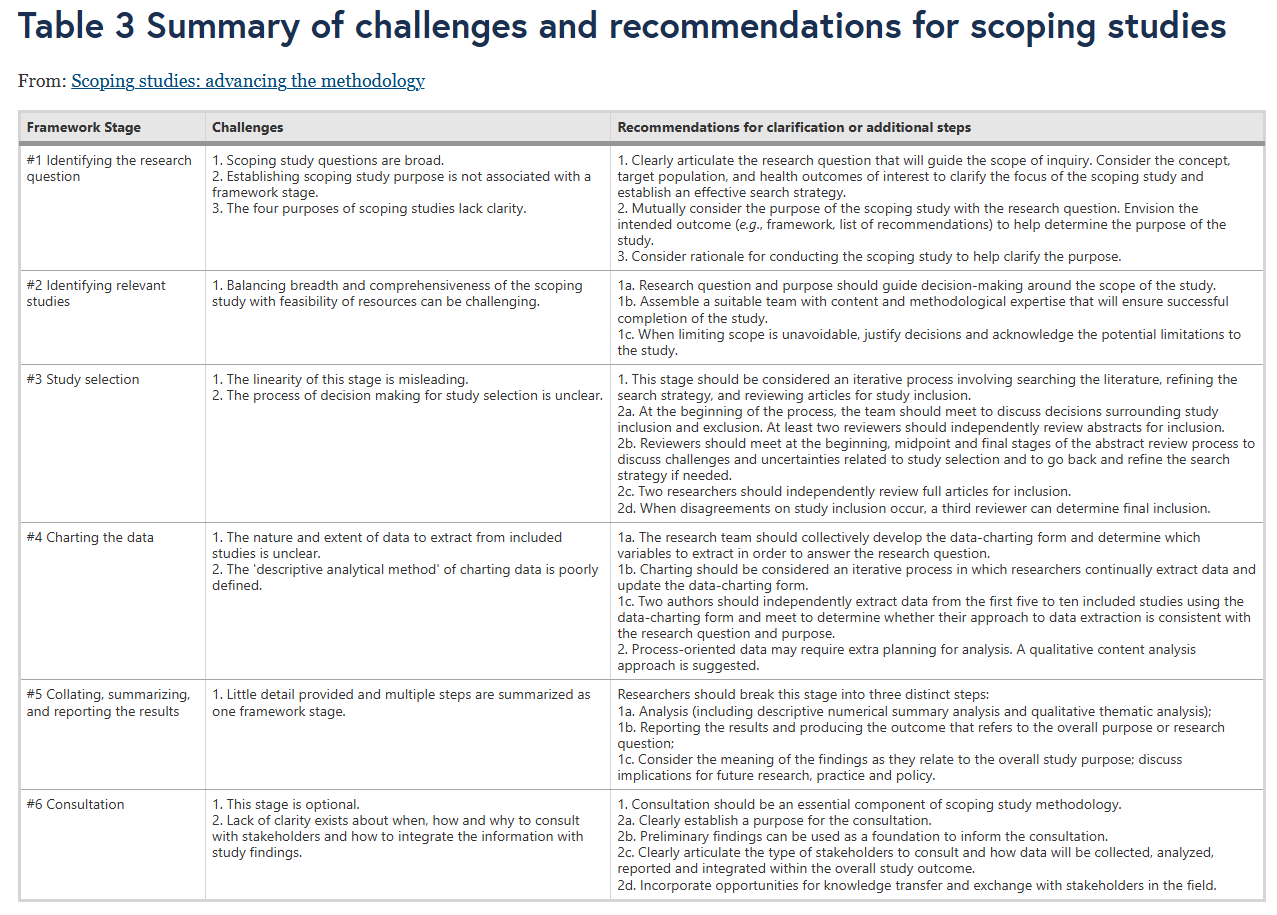Review
Scoping Review

Akartuna, Eray Arda, Shane D. Johnson, and Amy Thornton. 2024. “Enhancing the Horizon Scanning Utility of Futures-Oriented Systematic and Scoping Reviews.” Futures 158:103340. https://doi.org/10/g9px36.
Realist Review, Realist Synthesis, Realist Evaluation
Common in health, realist synthesis is a method for studying complex interventions in the real world. It focuses on understanding how and why interventions work (or do not work) in specific contexts, rather than simply measuring outcomes. This approach is particularly useful for evaluating interventions that involve multiple components, stakeholders, and varying contexts.
What works, for whom, under what circumstances?
Duddy, Claire, and Geoff Wong. 2023. “Grand Rounds in Methodology: When Are Realist Reviews Useful, and What Does a ‘Good’ Realist Review Look Like?” BMJ Quality & Safety 32 (3): 173–80. https://doi.org/10/m32s.
Participatory Action Research (PAR)
Participatory Action Research (PAR) is a collaborative research approach that actively involves participants in the research process. It emphasizes co-creation of knowledge and aims to empower participants by involving them in all stages of the research, from defining the problem to analysing data and implementing solutions. PAR is often used in community-based research, social justice initiatives, and educational settings.
Cornish, Flora, Nancy Breton, Ulises Moreno-Tabarez, Jenna Delgado, Mohi Rua, Ama de-Graft Aikins, and Darrin Hodgetts. 2023. “Participatory Action Research.” Nature Reviews Methods Primers 3 (1): 1–14. https://doi.org/10/gtj9xw.
Subnotes